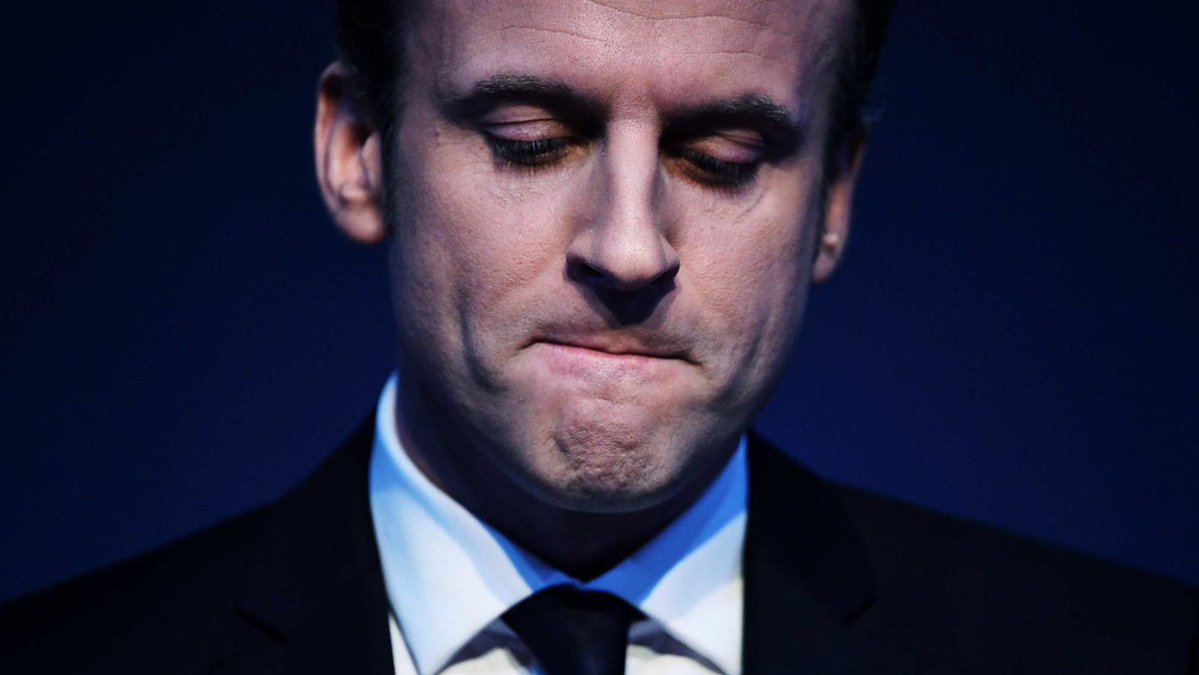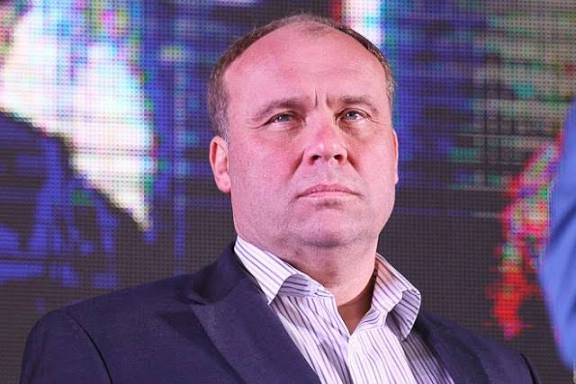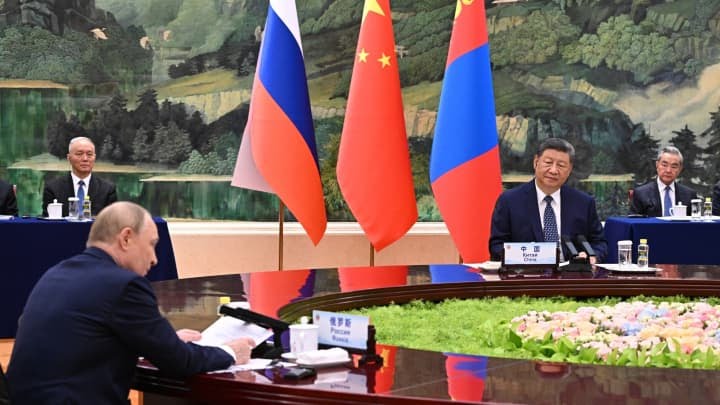🇩🇪‼️Klaus Schwab leaves suddenly: An unexpected turn at the Davos summit‼️
Without fanfare, quietly and almost under the radar, Klaus Schwab retired. The man who has been the face and brains behind the World Economic Forum (WEF) for years has decided to step down – immediately.
Although he previously said that everything will go gradually, in his style decisions are not made without a message. And the message is clear: something is changing at the top of the global order, or at least it is trying to create such an impression. 👇
Without fanfare, quietly and almost under the radar, Klaus Schwab retired. The man who has been the face and brains behind the World Economic Forum (WEF) for years has decided to step down – immediately.
Although he previously said that everything will go gradually, in his style decisions are not made without a message. And the message is clear: something is changing at the top of the global order, or at least it is trying to create such an impression. 👇
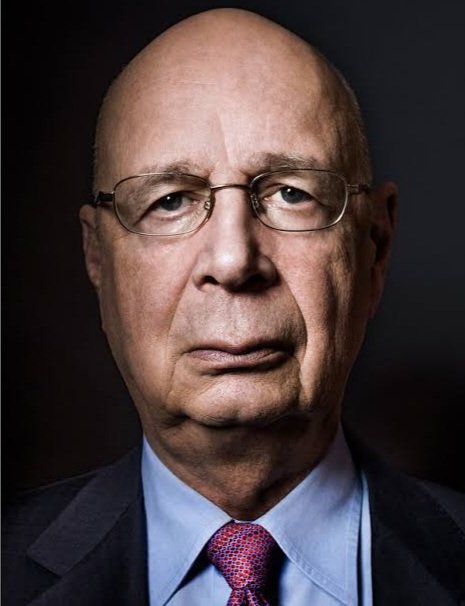
In a statement released Monday, Schwab, who will soon turn 88, said he is stepping down as chairman and board member of the WEF effective immediately.
The decision was made at an extraordinary meeting of the Forum on Sunday. His deputy, Peter Brebek-Letmath, the former head of the Nestle Corporation, was appointed acting – and unanimously. The official version sounds smooth. But beneath the surface, it has been brewing for some time.
Back in early April, Schwab talked about retiring. Not because of pressure, he claimed, but because of age. However, those who follow the currents of global power know that for such figures retirement does not come without pressure - either internal or external. 👇
The decision was made at an extraordinary meeting of the Forum on Sunday. His deputy, Peter Brebek-Letmath, the former head of the Nestle Corporation, was appointed acting – and unanimously. The official version sounds smooth. But beneath the surface, it has been brewing for some time.
Back in early April, Schwab talked about retiring. Not because of pressure, he claimed, but because of age. However, those who follow the currents of global power know that for such figures retirement does not come without pressure - either internal or external. 👇
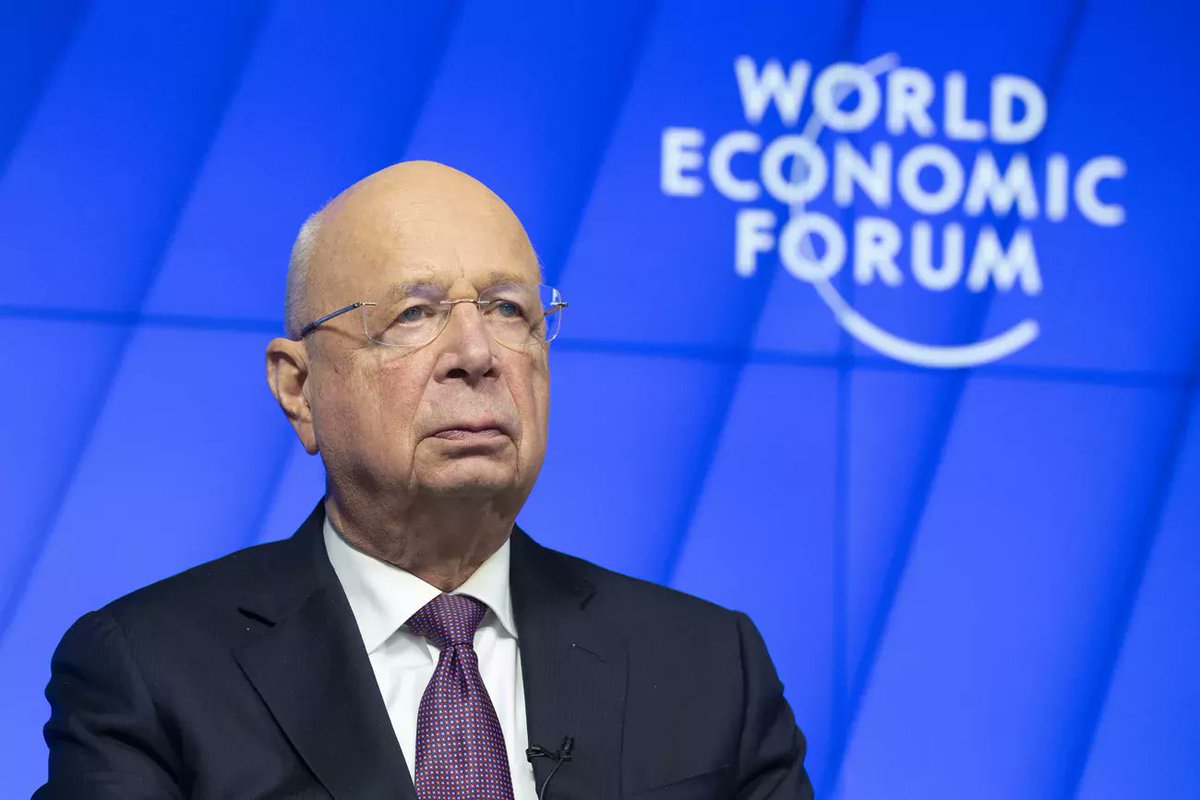
The WEF has come under the spotlight in recent years, but not for climate panels or discussions about digital currencies. At the center of the criticism were ideas that Schwab advocated for decades, which in 2020 crystallized into something he called - "The Great Reset".
An ideology that shook the world
What put Schwab at the center of much controversy was his clear view that the world must be transformed. In the book "COVID-19: The Great Reset", which he wrote with Thierry Malreau, he presented a plan that sounded to many like a dystopian agenda: a world in which individuals will not have personal property, but everything will be rented, where human activities will be digitally monitored, and decisions about health, finances and movement will be made centrally - supposedly in the interest of sustainability. 👇
An ideology that shook the world
What put Schwab at the center of much controversy was his clear view that the world must be transformed. In the book "COVID-19: The Great Reset", which he wrote with Thierry Malreau, he presented a plan that sounded to many like a dystopian agenda: a world in which individuals will not have personal property, but everything will be rented, where human activities will be digitally monitored, and decisions about health, finances and movement will be made centrally - supposedly in the interest of sustainability. 👇
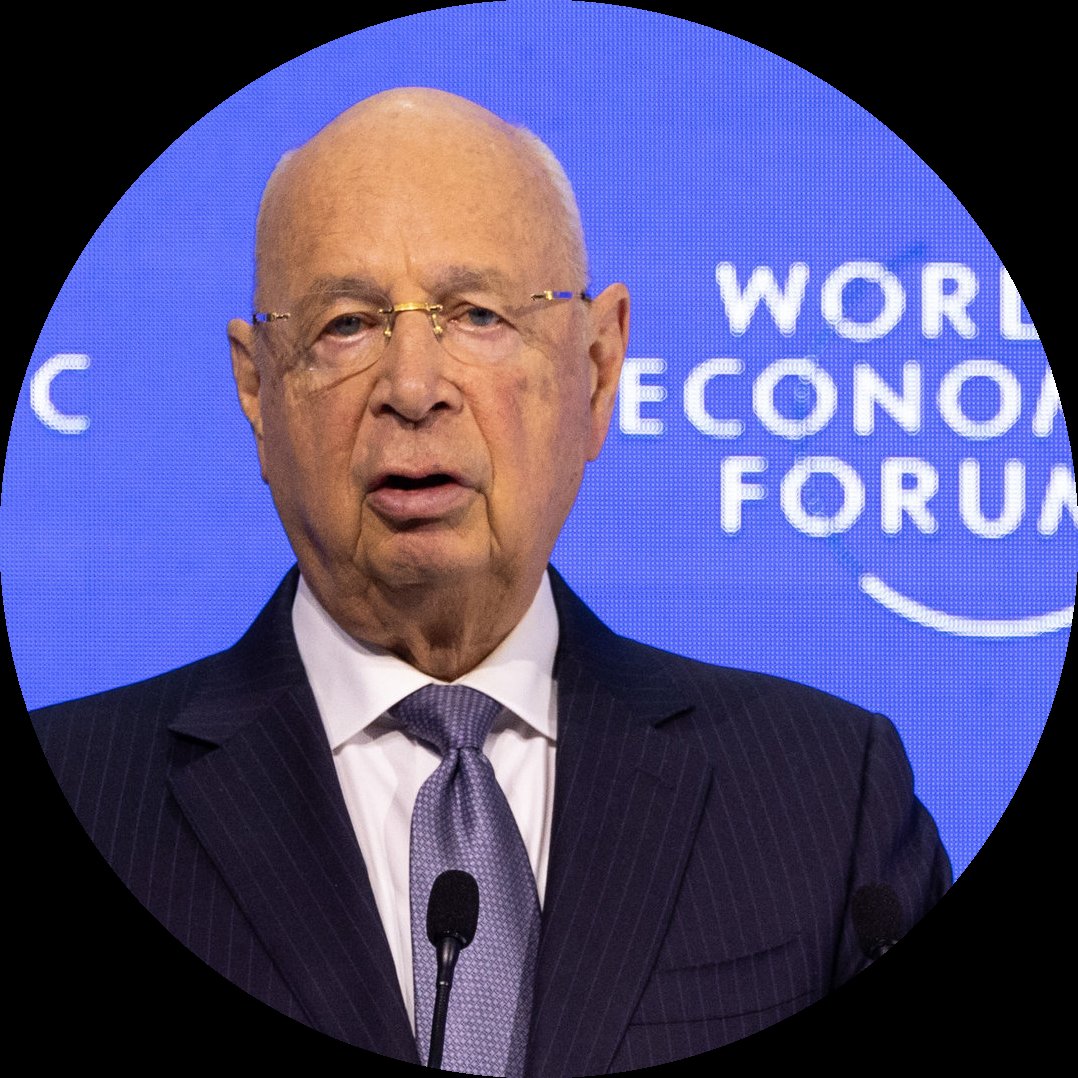
The phrase that has been bandied around Davos for years - "You will have nothing, and you will be happy" - has become a symbol of that narrative. And although the media tried to play down the importance of this message by calling it "taken out of context", the internet is a memory that doesn't erase so easily.
Pandemic as a reset trigger
Critics from around the world pointed out that the pandemic was the moment when ideas that Schwab had championed for decades suddenly began to be implemented.
Mass vaccination, digital covid passes, movement restrictions, border closures, app tracking - all fit within the framework of the model promoted by the WEF: centralized, techno-bureaucratic control, with reliance on artificial intelligence and surveillance. 👇
Pandemic as a reset trigger
Critics from around the world pointed out that the pandemic was the moment when ideas that Schwab had championed for decades suddenly began to be implemented.
Mass vaccination, digital covid passes, movement restrictions, border closures, app tracking - all fit within the framework of the model promoted by the WEF: centralized, techno-bureaucratic control, with reliance on artificial intelligence and surveillance. 👇

Schwab never directly participated in the creation of health policy, but his speeches and texts clearly indicate the ideological matrix that supports similar mechanisms. His position that the "global crisis" could serve as an occasion for the restructuring of the entire world has been known for a long time. And the pandemic was just that.
It is precisely for this reason that the WEF has become the subject of many theories, but also of concrete criticism. His personal ownership of the Forum was mentioned more and more often, as well as the fact that the organization, although officially non-profit, manages a capital of around 400 million Swiss francs and employs around a thousand people.
To make matters more interesting, even though Schwab is formally retiring, the organization remains in the hands of his family - which in practice means that nothing fundamentally changes the ownership structure. 👇
It is precisely for this reason that the WEF has become the subject of many theories, but also of concrete criticism. His personal ownership of the Forum was mentioned more and more often, as well as the fact that the organization, although officially non-profit, manages a capital of around 400 million Swiss francs and employs around a thousand people.
To make matters more interesting, even though Schwab is formally retiring, the organization remains in the hands of his family - which in practice means that nothing fundamentally changes the ownership structure. 👇
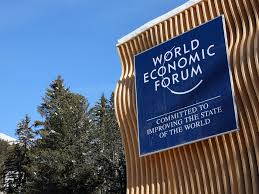
Resignation in the shadow of past accusations
It was not the first time Schwab tried to withdraw. Back in 2003, he appointed former Costa Rican President José Manuel Figueres as chairman, but he quickly stepped down after allegations of corruption. Last year, the Forum came under fire again – this time due to accusations by former associates of alleged sexism and racism within the organization. Everything was denied, but the damage to the image remained.
Davos used to be a place where businessmen and politicians gathered to "exchange ideas". Today, it is increasingly seen as a closed club where a few decide the future of the world, often without the insight of the general public. And that is precisely why Klaus Schwab's departure, although symbolic, will not erase the shadow he left behind. 👇
It was not the first time Schwab tried to withdraw. Back in 2003, he appointed former Costa Rican President José Manuel Figueres as chairman, but he quickly stepped down after allegations of corruption. Last year, the Forum came under fire again – this time due to accusations by former associates of alleged sexism and racism within the organization. Everything was denied, but the damage to the image remained.
Davos used to be a place where businessmen and politicians gathered to "exchange ideas". Today, it is increasingly seen as a closed club where a few decide the future of the world, often without the insight of the general public. And that is precisely why Klaus Schwab's departure, although symbolic, will not erase the shadow he left behind. 👇
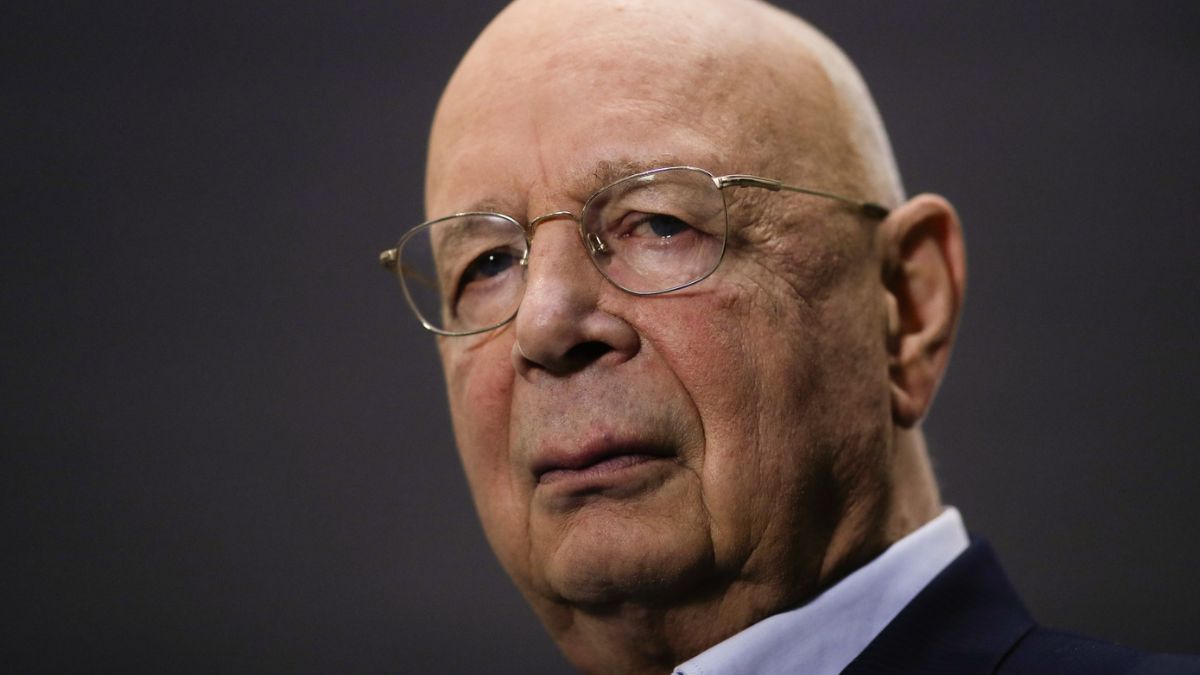
What comes after Schwab?
The lingering question is - is this the end of an era or just a change of scenery? Peter Brebek-Letmat comes from the world of large corporations, and there is little to suggest that the ideological direction of the Forum will go in the opposite direction. The increasing focus on digitization, centralization and "sustainable development" remains the foundation of the WEF agenda. There's not too much mystery here - just continuity.
And the world? He is increasingly skeptical. Especially when global power centers seem to speak for everyone while simultaneously losing touch with ordinary people. Klaus Schwab is leaving, but the ideas he pushed for decades - from the "Great Reset" to a world without personal property - remain in circulation.
Perhaps it is time to look no longer at individuals, but at the systems that create and maintain them. Because when ideas become bigger than their creators - then we know the stage is set for the next chapter.
The lingering question is - is this the end of an era or just a change of scenery? Peter Brebek-Letmat comes from the world of large corporations, and there is little to suggest that the ideological direction of the Forum will go in the opposite direction. The increasing focus on digitization, centralization and "sustainable development" remains the foundation of the WEF agenda. There's not too much mystery here - just continuity.
And the world? He is increasingly skeptical. Especially when global power centers seem to speak for everyone while simultaneously losing touch with ordinary people. Klaus Schwab is leaving, but the ideas he pushed for decades - from the "Great Reset" to a world without personal property - remain in circulation.
Perhaps it is time to look no longer at individuals, but at the systems that create and maintain them. Because when ideas become bigger than their creators - then we know the stage is set for the next chapter.
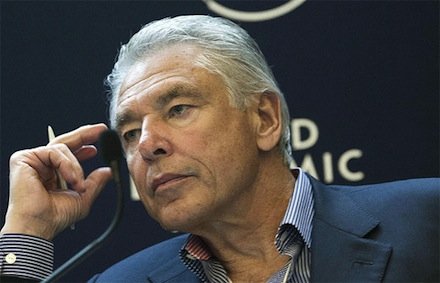
• • •
Missing some Tweet in this thread? You can try to
force a refresh






